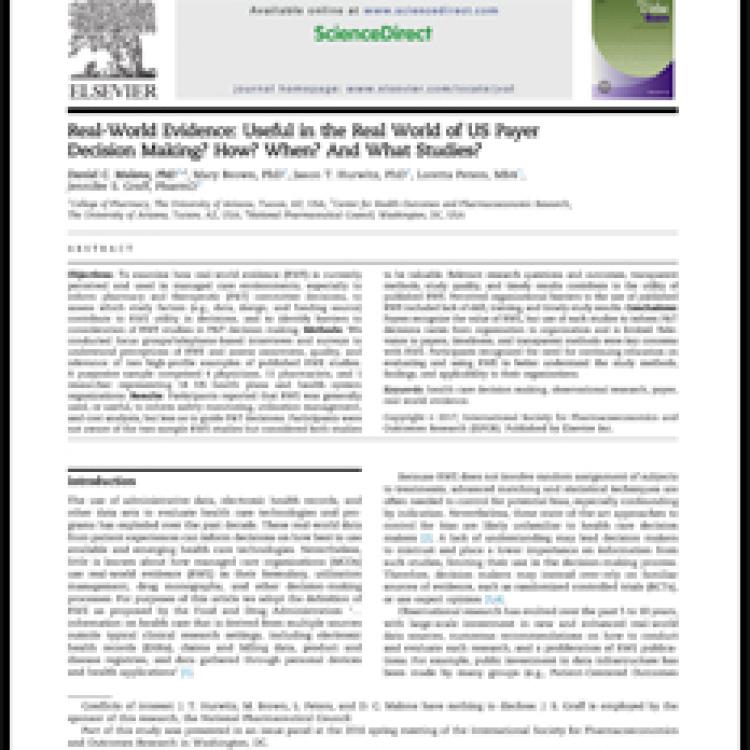Authors: Malone D, Brown M, Hurwitz JT, Peters L, Graff JS.
Publication: Value in Health, published online October 2017.
Research published in Value in Health on real-world evidence (RWE) provides a deeper understanding of when and how managed care organizations (MCOs) use RWE in decision-making, and how to increase its use.
To better understand how RWE is being used in health plan environments, researchers from the University of Arizona College of Pharmacy and the National Pharmaceutical Council explored three questions:
- How was RWE perceived and used in managed care environments, including pharmacy and therapeutic (P&T) committee decisions?
- Are certain types of studies more useful than others to payers?
- What are the barriers to broader use of RWE studies?
To address these questions, a sample of pharmacists and physicians from a variety of health plans, pharmacy benefit managers, and health systems were surveyed about payer perceptions of RWE.
How is RWE perceived and used in managed care? Payers recognize the value of RWE, but use of such studies varies from organization to organization and remains limited. Although RWE was infrequently used in the P&T process, it was often used elsewhere in the organization, such as for utilization management, financial analyses and safety evaluations.
Are certain types of studies more useful than others? While study quality was important, payers were less focused on the study design (e.g., whether the study followed patients prospectively or looked back retrospectively at clinical experience) or the data source (e.g., electronic health records or administrative claims). Instead, payers sought research that answered relevant research questions and outcomes, used transparent methods, and had timely results to inform formulary decisions.
What are the barriers to broader use of RWE in payer decision-making? To improve the quality of RWE research and ultimate use of these studies, payers suggested that researchers should address questions that are important to payers, be transparent and complete when reporting of methods and results, and address potential study biases. For payers using RWE, organization barriers exist, including lack of skill conducting and interpreting RWE studies, the need for training to adequately use RWE, and opportunities to increase organizational capacity. Participants cited the need for tools and continuing education on evaluating and using RWE in their organizations.
